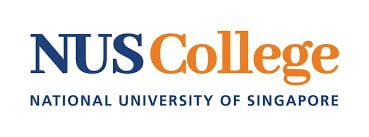If this is the first time you are visiting/editing this page, you can read the getting started guide for using Divi here. Divi is the theme we use for this site and the way it works is slightly different from plain-old vanilla WordPress.
The following guides might help you get started:
Assignments
Unsurprisingly, the module requires you to produce critical reflections — typically, reflective writing, although reflections presented in other media may be possible, depending on your instructor. Generally speaking, you will write shorter reflections at the start of the module, and a final assignment (often in the form of a portfolio or ePortfolio) will then require you to compile, consolidate, or rework the initial reflections.
With all your reflections (both the shorter pieces and the culminating collection of reflections), you will have to think about, and specify, the audience for these pieces, but they are usually expected to be more public, reaching beyond the academy (e.g., written for potential employers; graduate school admission committees; scholarship boards; etc.). You will be assessed not on the quality or quantity of your experiences, but on whether you are able to critically reflect on the experiences. Assessment of your success at critical reflection may include the following criteria: does your writing use clearly defined evidence? Are you able to reflect and make new meaning out of your experiences? Do your critical reflections and portfolio or ePortfolio suit the audience you have identified? Taken together, the reflective writing you will do in this module is an opportunity to identify and articulate your intellectual and professional commitments as they have been shaped by your undergraduate experiences, and in so doing, the reflective writing provides you with a roadmap with which to navigate your post-university life.
Seminar Participation (10% of total grade)
You are expected to actively participate in seminar discussions and peer review sessions. This is true of most USP modules, and perhaps especially so in this one, which emphasizes that reflection often happens in community.
Reflection Post: Learning Inside and Outside Class (20% of total grade)
Your first assignment will require you to connect two learning experiences you’ve had during your undergraduate years: one that took place in a formal classroom setting, and the other outside of it. Typically the reflection will be a piece of writing (whether an essay or a blog post), though reflections in other media may be possible.
More details will be conveyed by your section leader.
Reflection Post: USP/Major Connection (20% of total grade)
Your second assignment will require you to connect two learning experiences you’ve had during your undergraduate years: one should be a learning experience related to the USP curriculum, and the other to the curriculum of your home faculty and/or major. Typically the reflection will be a piece of writing (whether an essay or a blog post), though reflections in other media may be possible.
More details will be conveyed by your section leader.
Third Project (20% of total grade)
This assignment or set of assignments is specific to your USR section. Your instructor will give you more information about it.
Portfolio (30% of total grade)
The final assignment is the production of a portfolio; more details are available in the next section of the module website.

